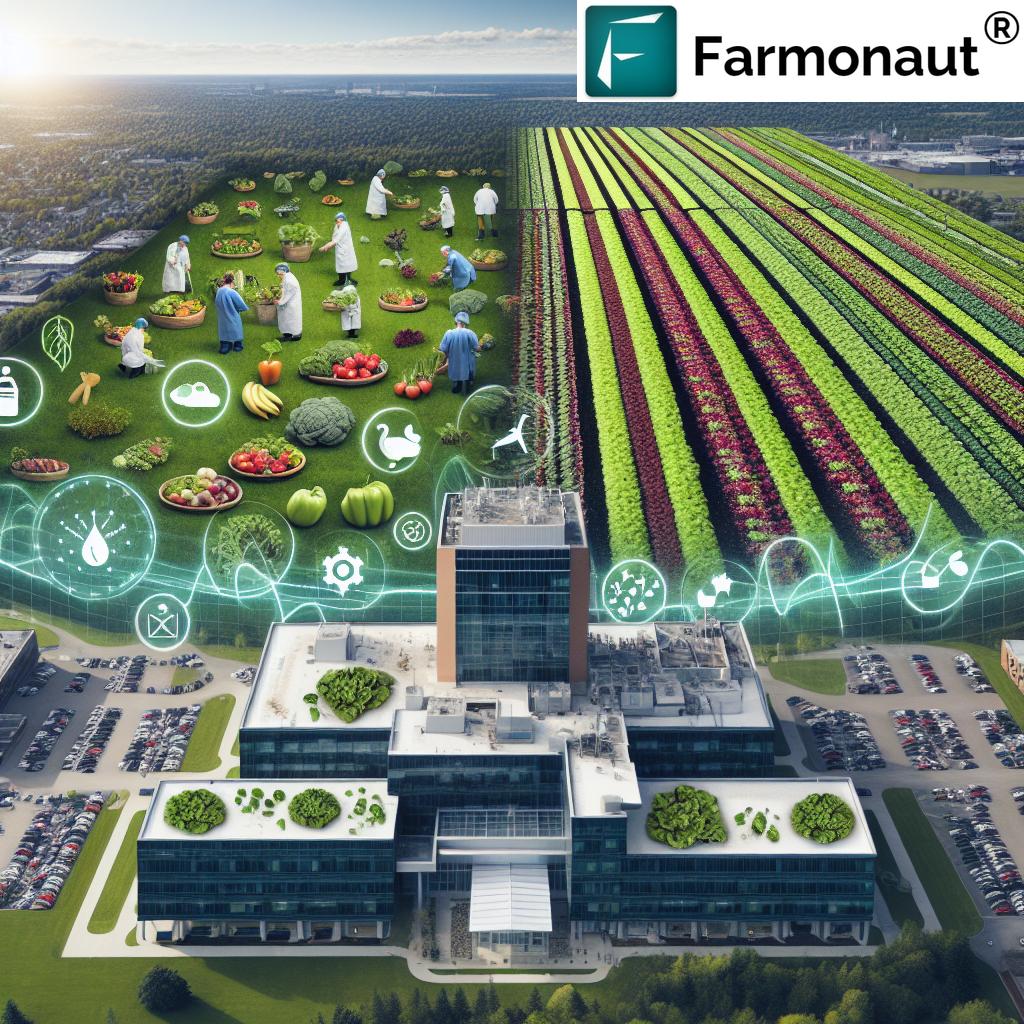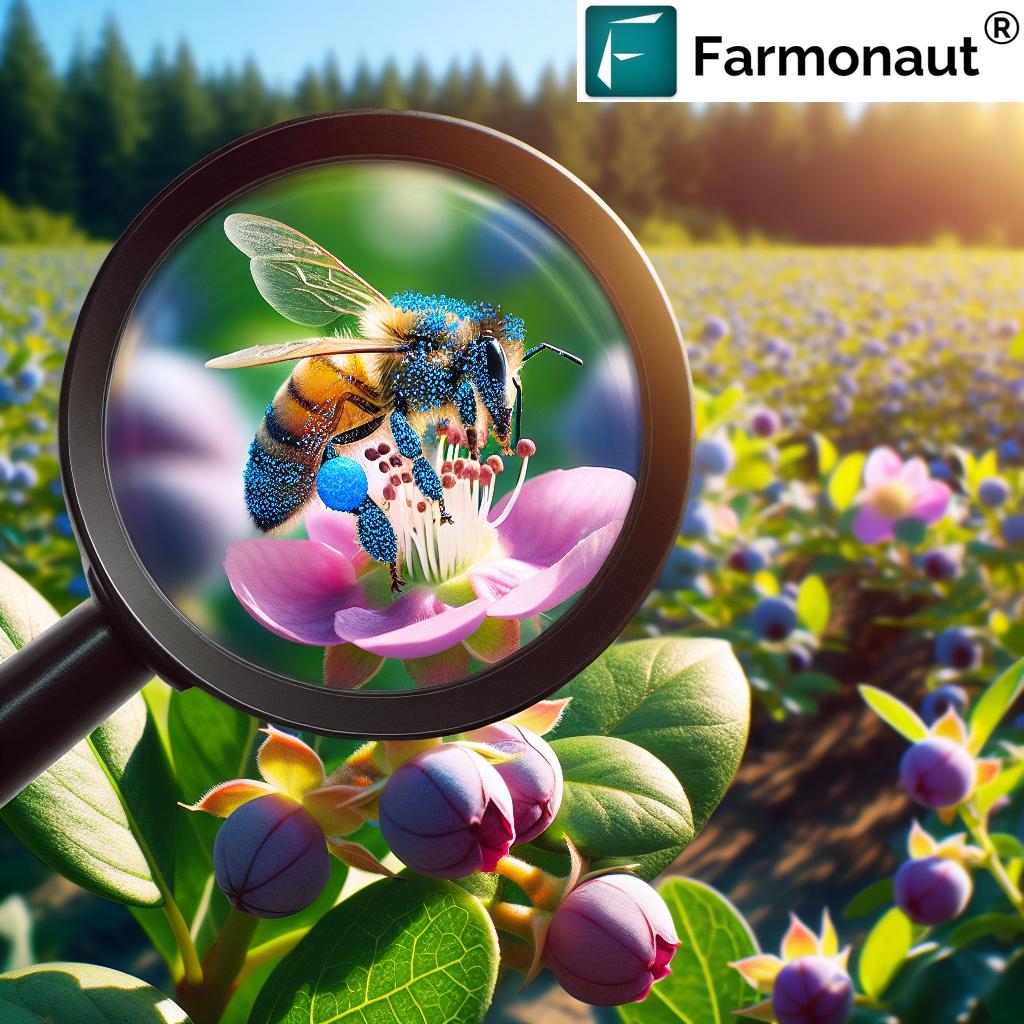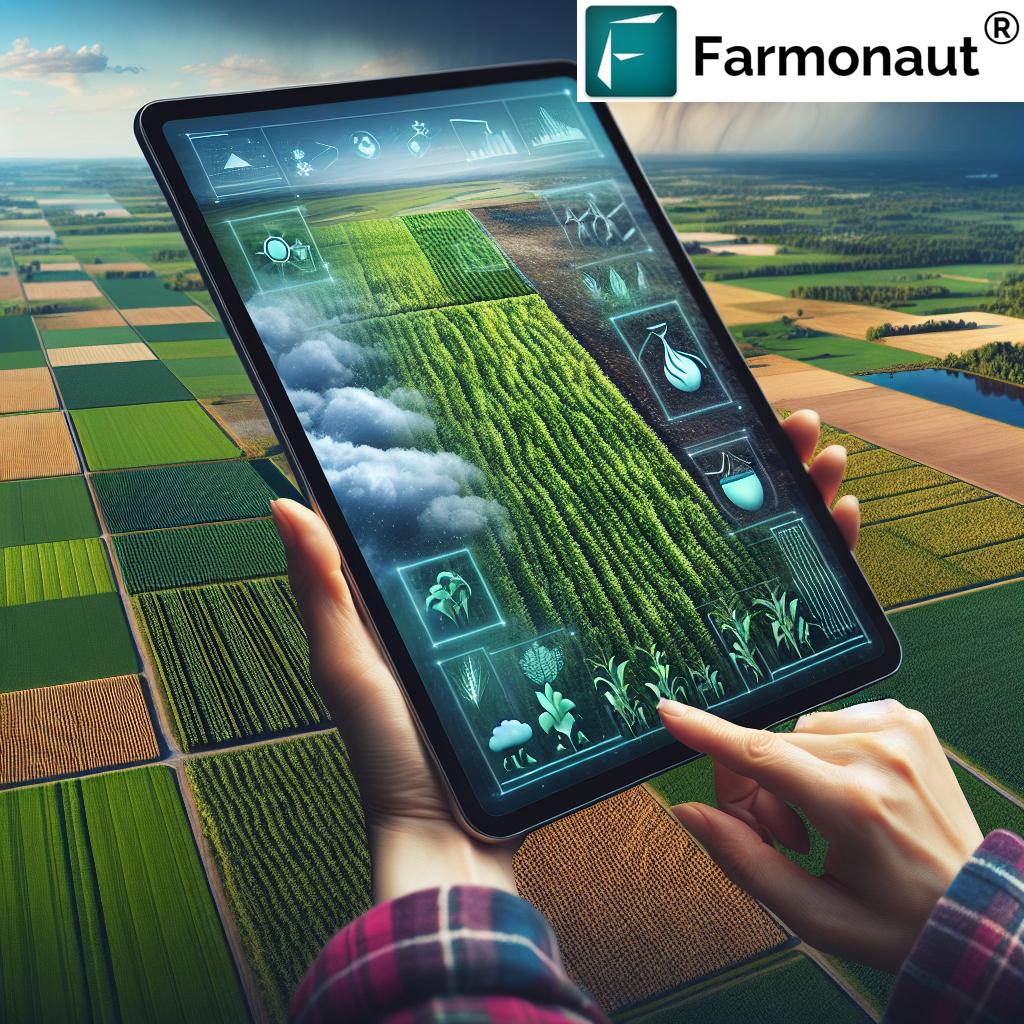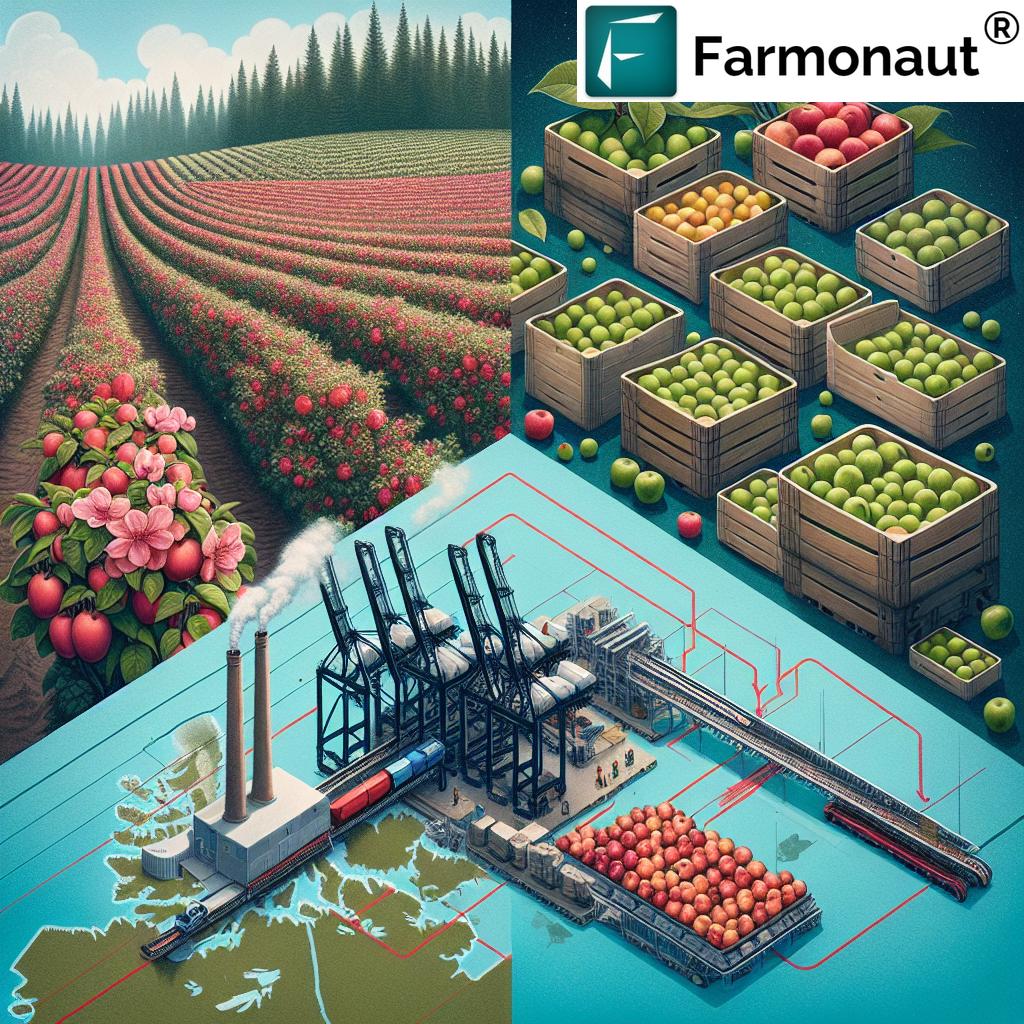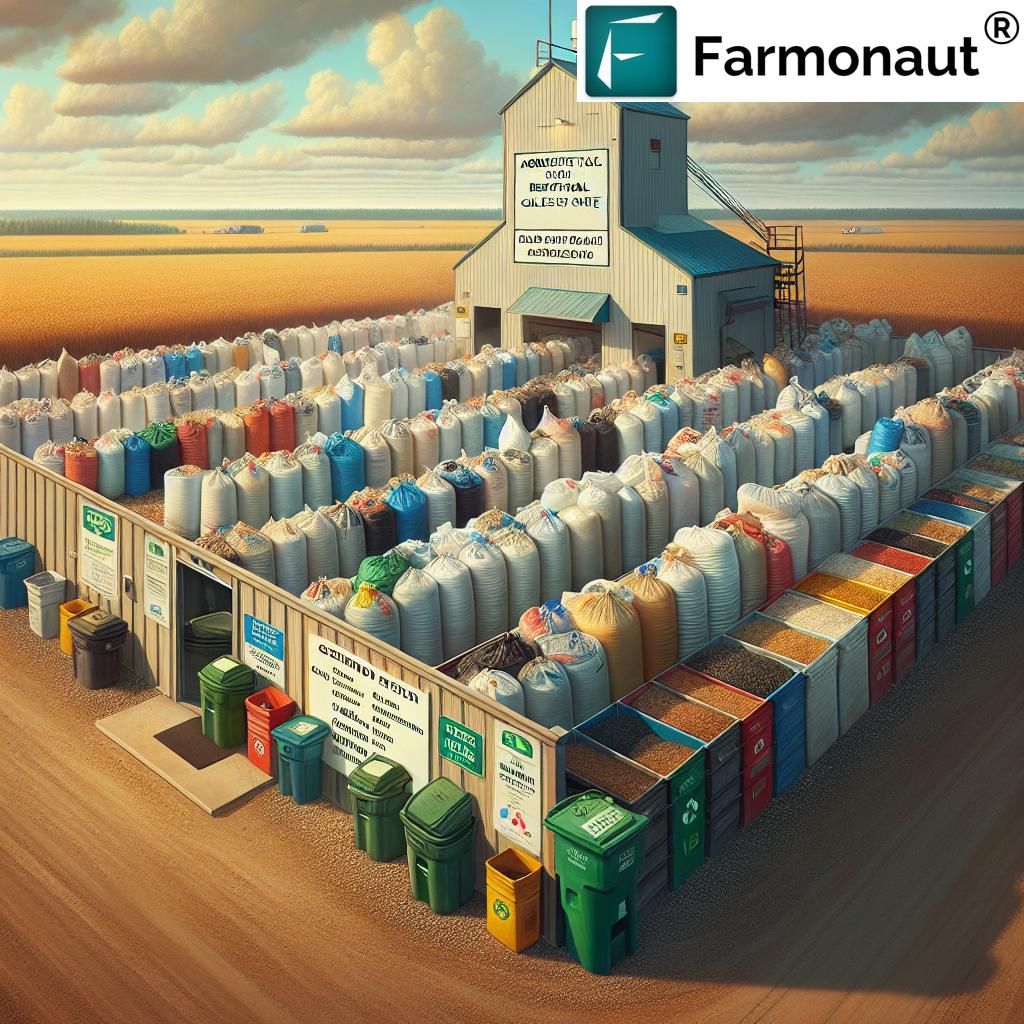Revolutionizing Alberta’s Crop Science: Precision Farming Technologies Boost Wheat and Soybean Yields
“Hybrid wheat development is a key focus, with potential to increase yields by up to 15% compared to conventional varieties.”
In the ever-evolving landscape of crop science innovations and precision farming technologies, Alberta’s agricultural sector is witnessing a significant transformation. As we delve into the latest trends shaping the agricultural seed market, we’ll explore how cutting-edge technologies are revolutionizing wheat and soybean production in the prairie province. From hybrid wheat development to advanced digital farming solutions, we’ll uncover the strategies that are propelling Alberta’s farmers towards unprecedented yields and sustainability.
The Shifting Landscape of Alberta’s Agricultural Seed Market
Alberta’s agricultural industry has long been a cornerstone of the Canadian economy, with its vast prairies producing world-class wheat, canola, and increasingly, soybeans. However, the sector is facing new challenges and opportunities as global demand for food increases and climate patterns shift. In response, major players in the crop science industry are exploring innovative approaches to strengthen their seed operations, particularly in the wheat and soybean sectors.
One such trend is the intense focus on hybrid wheat development. This groundbreaking technology promises to address longstanding challenges in wheat breeding and has the potential to significantly boost yields. Simultaneously, companies are capitalizing on yield optimization techniques that leverage the power of big data and artificial intelligence to fine-tune every aspect of crop production.

Digital Farming Solutions: The Future of Alberta’s Agriculture
The integration of digital farming solutions is reshaping the agricultural landscape of Alberta. These advanced technologies are not just improving crop yields; they’re fundamentally changing how farmers approach their operations. By combining seeds, crop protection strategies, and cutting-edge technologies, companies are now offering comprehensive solutions that address the complex needs of modern farming.
- Satellite-based crop monitoring
- AI-driven predictive analytics
- Precision application of inputs
- Real-time weather forecasting
- Automated machinery guidance
These digital tools are enabling Alberta’s farmers to make data-driven decisions that optimize resource use, minimize environmental impact, and maximize crop yields. As competition in the industry intensifies through mergers and acquisitions, the push for innovation in areas like hybrid seeds and precision farming is accelerating at an unprecedented pace.
The Role of Remote Sensing and GIS in Alberta’s Crop Management
At the forefront of this agricultural revolution are remote sensing and Geographic Information System (GIS) technologies. These advanced tools are providing Alberta’s farmers with invaluable insights for crop management and yield improvement. Companies like Farmonaut are leading the charge, offering cutting-edge solutions that complement the industry’s shift towards data-driven farming practices.
Farmonaut’s platform leverages satellite imagery and AI to deliver real-time crop health monitoring, enabling farmers to detect issues early and take precise action. This level of detail was previously unimaginable on the vast scale of Alberta’s wheat and soybean fields.
By integrating these technologies, Alberta’s farmers can:
- Monitor crop health in real-time
- Optimize irrigation schedules
- Detect pest and disease outbreaks early
- Reduce chemical inputs through precise application
- Predict yield potential with greater accuracy
The impact of these technologies on Alberta’s wheat and soybean production cannot be overstated. Farmers are seeing significant improvements in yield consistency and quality, all while reducing their environmental footprint.
Sustainable Agriculture Practices in Alberta’s Crop Production
As the global focus on sustainability intensifies, Alberta’s agricultural sector is embracing practices that balance productivity with environmental stewardship. Sustainable agriculture is no longer just a buzzword; it’s becoming a critical component of successful farming operations across the province.
Precision farming technologies are at the heart of this sustainable revolution. By enabling farmers to apply inputs with pinpoint accuracy, these tools are dramatically reducing waste and minimizing the environmental impact of agricultural activities. This approach not only benefits the environment but also improves the bottom line for Alberta’s farmers.
| Technology Name | Primary Function | Estimated Yield Increase for Wheat (%) | Estimated Yield Increase for Soybean (%) | Implementation Complexity | Initial Investment Cost | Long-term ROI Potential |
|---|---|---|---|---|---|---|
| Satellite Imagery | Crop Health Monitoring | 5-10 | 7-12 | Low | Medium | High |
| Drone Mapping | Precision Field Analysis | 3-8 | 4-9 | Medium | Medium | Medium |
| Soil Sensors | Moisture and Nutrient Monitoring | 4-7 | 5-8 | Low | Low | High |
| Variable Rate Application Systems | Precision Input Application | 6-12 | 8-15 | High | High | High |
| AI-driven Crop Management Platforms | Integrated Decision Support | 8-15 | 10-18 | Medium | Medium | High |
Key sustainable practices being adopted include:
- Conservation tillage to reduce soil erosion
- Precision nutrient management to minimize runoff
- Integrated pest management to decrease pesticide use
- Water-efficient irrigation systems
- Crop rotation strategies to improve soil health
These practices, supported by advanced technologies, are helping Alberta’s farmers meet the growing demand for sustainably produced wheat and soybeans.
Hybrid Wheat Development: A Game-Changer for Alberta’s Farmers
The development of hybrid wheat varieties represents one of the most exciting frontiers in crop science. For Alberta’s wheat farmers, this breakthrough could mean a significant leap in productivity and resilience. Hybrid wheat has the potential to offer:
- Increased yield stability across diverse environments
- Enhanced resistance to diseases and pests
- Improved tolerance to environmental stresses
- Better end-use quality characteristics
While hybrid wheat development presents technical challenges, the potential rewards for Alberta’s agricultural sector are substantial. Industry leaders are investing heavily in research and development to overcome these hurdles and bring hybrid wheat to market.
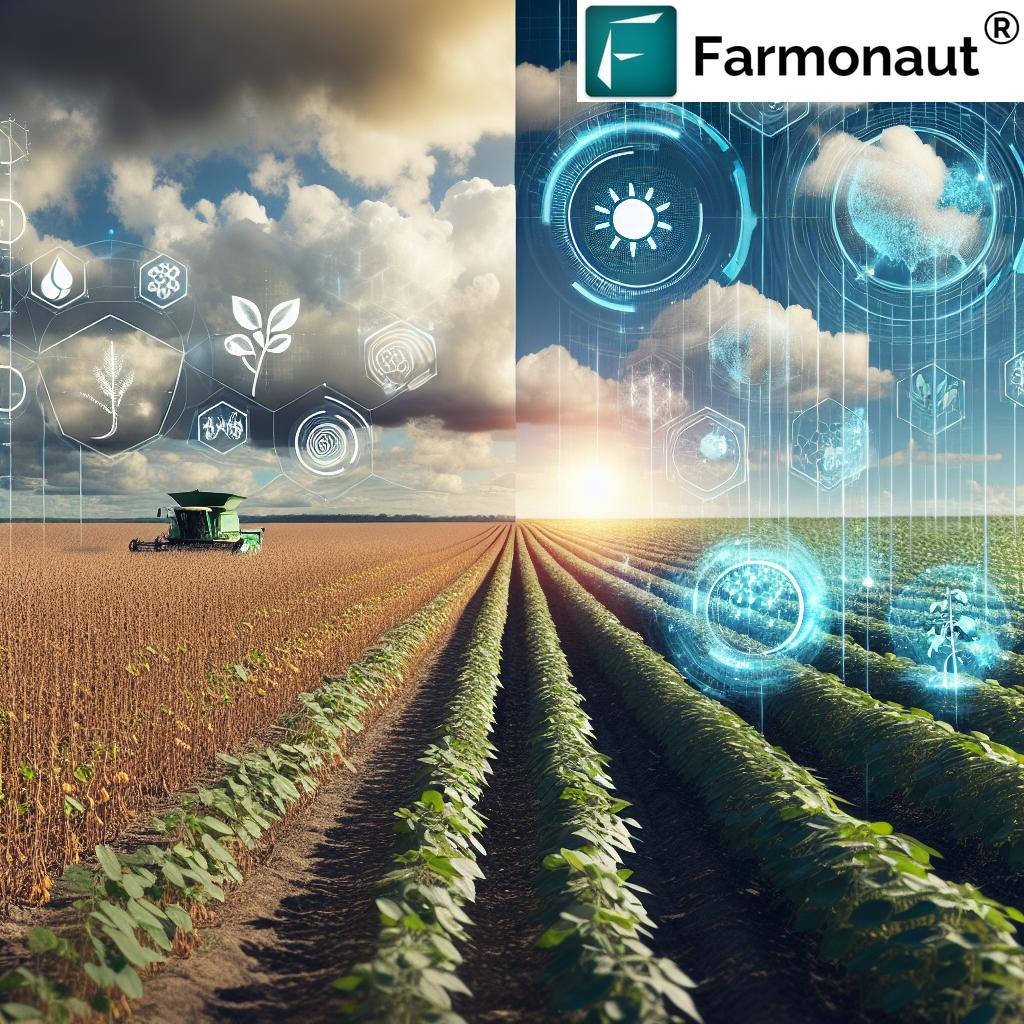
Soybean Seed Expansion in Alberta: Opportunities and Challenges
While wheat has long been a staple crop in Alberta, soybeans are gaining ground as a valuable addition to crop rotations. The expansion of soybean cultivation in the province presents both opportunities and challenges for farmers and seed companies alike.
Opportunities include:
- Diversification of crop portfolios
- Increased market options for farmers
- Potential for value-added processing within the province
- Improved soil health through nitrogen fixation
Challenges to address:
- Developing varieties adapted to Alberta’s climate
- Expanding processing and transportation infrastructure
- Educating farmers on best practices for soybean cultivation
- Managing potential pest and disease pressures
As seed companies work to expand their soybean offerings, Alberta’s farmers are poised to benefit from new, high-yielding varieties tailored to local growing conditions.
The Impact of Agritech Mergers and Acquisitions on Alberta’s Farmers
The agricultural industry is experiencing a wave of consolidation, with major players exploring acquisition opportunities to strengthen their market positions. For Alberta’s farmers, this trend has significant implications:
- Access to a broader range of integrated crop solutions
- Potential for accelerated innovation in seed technologies
- Concerns about market concentration and pricing
- Opportunities for partnerships with larger, well-resourced companies
As these industry shifts unfold, it’s crucial for Alberta’s agricultural community to stay informed and adapt to the changing landscape. Farmers who leverage the latest technologies and partnerships stand to gain a competitive edge in an increasingly complex market.
Yield Optimization Techniques: Maximizing Alberta’s Crop Potential
Yield optimization is at the heart of modern agriculture, and Alberta’s farmers are embracing a range of techniques to maximize their crop potential. These strategies combine traditional agronomic knowledge with cutting-edge technologies to push the boundaries of what’s possible in wheat and soybean production.
“The global precision farming market is projected to reach $12.8 billion by 2025, growing at a CAGR of 13.7%.”
Key yield optimization techniques include:
- Precision planting for optimal seed spacing and depth
- Variable rate fertilization based on soil nutrient maps
- Smart irrigation systems that respond to real-time soil moisture data
- Predictive analytics for pest and disease management
- Harvest timing optimization using crop maturity models
These techniques, supported by platforms like Farmonaut, are enabling Alberta’s farmers to achieve yields that were once thought impossible. By providing real-time insights and actionable recommendations, these tools are transforming how decisions are made in the field.
The Role of Crop Protection Strategies in Alberta’s Agriculture
Effective crop protection is essential for maximizing yields and ensuring the quality of Alberta’s wheat and soybean harvests. As the climate changes and new pest pressures emerge, farmers are adopting integrated approaches that combine chemical, biological, and cultural control methods.
Advanced crop protection strategies include:
- Precision application of pesticides using GPS-guided sprayers
- Biological control agents that target specific pests
- Crop rotation planning to break pest and disease cycles
- Use of resistant varieties developed through advanced breeding techniques
- Early detection systems powered by AI and machine learning
These strategies not only protect crops but also contribute to the overall sustainability of Alberta’s agricultural sector by reducing the environmental impact of farming operations.
The Future of Alberta’s Crop Science: Trends and Predictions
As we look to the future of crop science in Alberta, several trends are emerging that will shape the industry in the coming years:
- Increased adoption of AI and machine learning in farm management
- Development of climate-resilient crop varieties
- Expansion of vertical farming and controlled environment agriculture
- Integration of blockchain technology for supply chain transparency
- Growing emphasis on carbon sequestration and ecosystem services in agriculture
These trends point to a future where Alberta’s farmers are not just producers of food but also stewards of the environment and innovators in their own right. The integration of advanced technologies like those offered by Farmonaut will be crucial in realizing this vision.
Leveraging Farmonaut’s Technologies for Alberta’s Agricultural Success
Farmonaut’s suite of advanced agricultural technologies is particularly well-suited to address the challenges and opportunities facing Alberta’s wheat and soybean farmers. By leveraging satellite imagery, AI, and machine learning, Farmonaut provides farmers with the tools they need to make data-driven decisions that optimize yields and resource use.
Key features of Farmonaut’s platform include:
- Real-time crop health monitoring using multispectral satellite imagery
- AI-powered advisory system for personalized farm management recommendations
- Precision resource management tools for optimizing input use
- Weather forecasting and climate analytics for improved planning
- Integration with other farm management systems for comprehensive decision support
These tools are helping Alberta’s farmers stay at the forefront of agricultural innovation, ensuring the province remains a leader in crop production for years to come.
Conclusion: Embracing Innovation for a Thriving Agricultural Future
As we’ve explored throughout this article, the landscape of crop science and precision farming in Alberta is undergoing a remarkable transformation. From hybrid wheat development to advanced digital farming solutions, the tools and technologies available to farmers are more sophisticated and powerful than ever before.
By embracing these innovations, Alberta’s agricultural sector is positioning itself for a future of increased productivity, sustainability, and resilience. The integration of precision farming technologies, supported by platforms like Farmonaut, is not just boosting wheat and soybean yields; it’s revolutionizing the very nature of farming in the province.
As we move forward, the success of Alberta’s agricultural industry will depend on the continued adoption of these cutting-edge technologies and practices. By staying at the forefront of crop science innovations and leveraging the power of data-driven decision-making, Alberta’s farmers will be well-equipped to meet the challenges of feeding a growing global population while preserving the land for future generations.
The future of Alberta’s agriculture is bright, and with the right tools and technologies, the province’s farmers are ready to lead the way in sustainable, high-yield crop production.
FAQ Section
Q: How are precision farming technologies improving wheat and soybean yields in Alberta?
A: Precision farming technologies are improving yields by enabling farmers to make data-driven decisions about planting, fertilization, irrigation, and pest management. These technologies use satellite imagery, soil sensors, and AI to provide real-time insights into crop health and field conditions, allowing for targeted interventions that optimize resource use and maximize yields.
Q: What are the benefits of hybrid wheat for Alberta’s farmers?
A: Hybrid wheat offers several potential benefits, including increased yield stability, enhanced disease resistance, improved stress tolerance, and better end-use quality characteristics. These advantages can lead to higher and more consistent yields, even under challenging growing conditions.
Q: How is Farmonaut contributing to the advancement of agriculture in Alberta?
A: Farmonaut is contributing by providing advanced satellite-based farm management solutions that offer real-time crop health monitoring, AI-driven advisory systems, and resource management tools. These technologies help Alberta’s farmers make informed decisions, optimize their operations, and improve overall productivity and sustainability.
Q: What challenges does the expansion of soybean cultivation face in Alberta?
A: The main challenges include developing soybean varieties adapted to Alberta’s climate, expanding processing and transportation infrastructure, educating farmers on best practices for soybean cultivation, and managing potential new pest and disease pressures associated with soybean production in the region.
Q: How are sustainable agriculture practices being integrated into Alberta’s crop production?
A: Sustainable practices are being integrated through the adoption of precision farming technologies, conservation tillage, integrated pest management, water-efficient irrigation systems, and crop rotation strategies. These practices help reduce environmental impact while maintaining or improving crop yields.
For more information on how Farmonaut’s technologies can benefit your farming operations, visit our API Developer Docs or explore our platform through our Android App or iOS App.
Ready to revolutionize your farming practices? Access our cutting-edge solutions through our Web App or explore our API for seamless integration with your existing systems.





